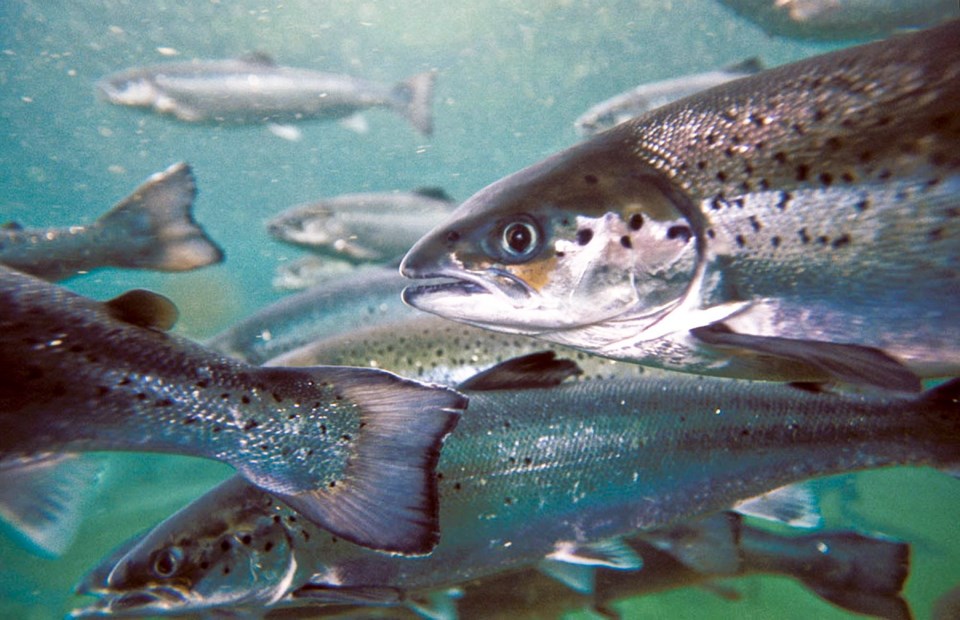Wild salmon in B.C. have tested negative for three fish diseases at the centre of controversy around the effect of fish farms on wild salmon runs.
The Canadian Food Inspection Agency said the 4,175 samples collected tested negative for infectious salmon anemia (ISA).
The wild samples, collected from B.C. waters, processing plants and hatcheries as part of a surveillance program, also tested negative for infectious haematopoietic necrosis (IHN) and infectious pancreatic necrosis (IPN).
All three diseases, which are contagious and can cause disease and death in salmon, must be reported if they are found.
The tests included salmon species that are known to carry infection without showing signs of the disease, CFIA said. IHN is found in some species of fish in B.C., but the presence of the other diseases has not been confirmed, the agency said.
Independent biologist Alexandra Morton, a vocal foe of salmon farms, raised alarm bells in 2011 when she reported that tests conducted for her by a Prince Edward Island laboratory had found ISA in wild Pacific salmon.
The virus, part of the influenza family, has devastated farms of Atlantic salmon in Norway, Chile and eastern Canada, but is not believed to be fatal to Pacific salmon. Atlantic salmon are farmed in B.C.
“It has killed more salmon than any other virus known, causing $2 billion in damages in Chile,” Morton said.
Morton, who is continuing to submit her own samples for testing by international laboratories, is asking CFIA to disclose details of their test protocols and to submit their work for peer review “by the scientific community that is tracking this virus in salmon farms around the world.”
Seven labs have found segments of the European strain of ISA in B.C., Morton said.
“When seven labs find one thing and the one official lab reports the opposite, the public are at risk,” Morton said. “If I could ask one question it would be: Why is the CFIA not looking for this Atlantic virus in the millions of Atlantic salmon in feedlots in B.C.?”
Salmon farmers, who say they have sent more than 8,000 samples for testing without a confirmed finding of ISA, have said that the damage wrought on other fish-farming communities by the virus shows it is not active in B.C., where the survival rate of farmed fish is more than 90 per cent.
Next year, the government surveillance program, which is led by CFIA with input from Fisheries and Oceans Canada, the provincial government, First Nations and the aquaculture, fishing and processing industries, is expected to test more than 5,000 fish.
ISA is not harmful to humans who eat the fish.



